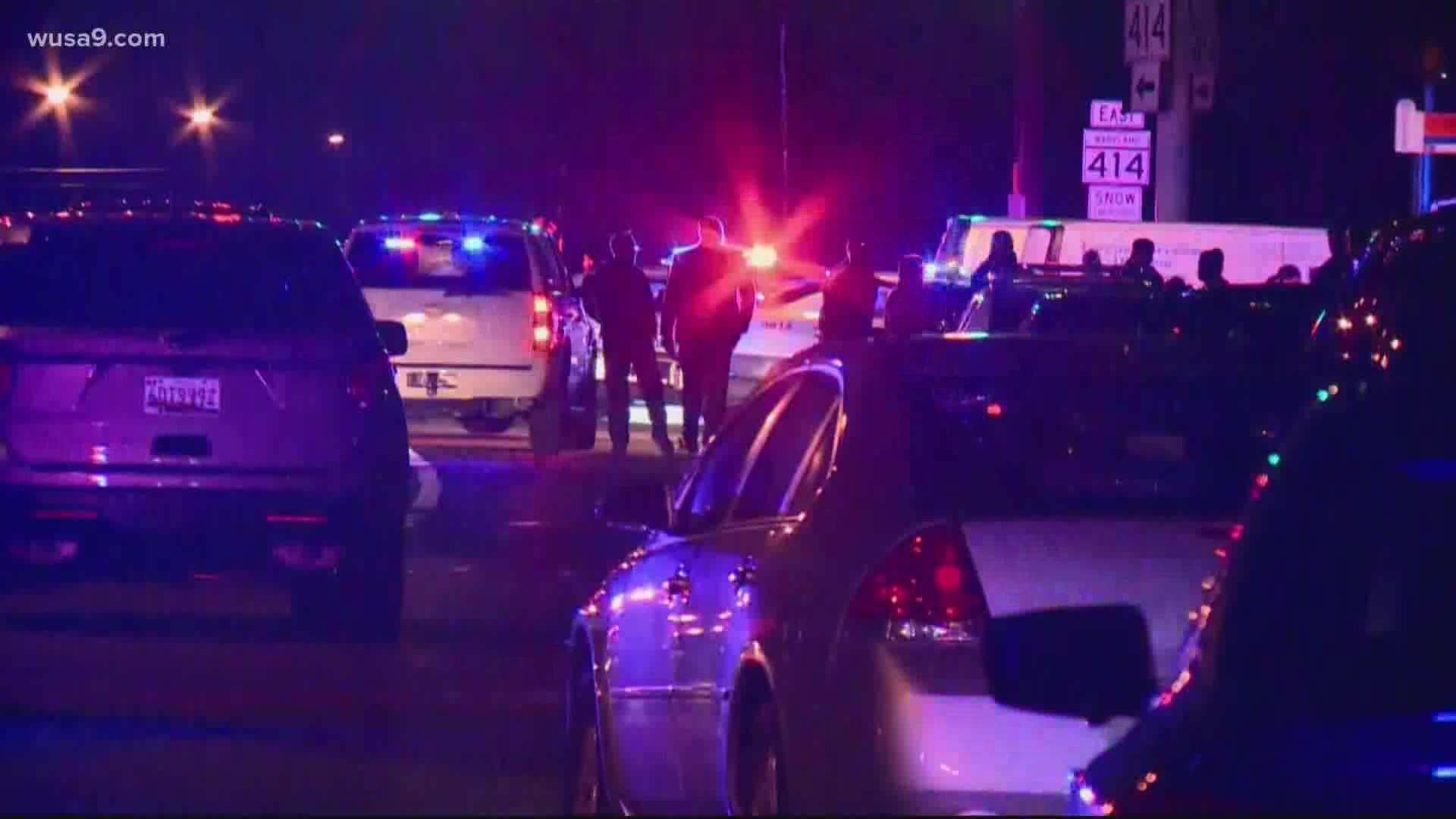WASHINGTON — If someone in D.C. calls 911 with a mental health crisis, soon it might not be police showing up at their door.
In June, the District will start deploying community response teams, made up of behavioral health experts and peers with similar lived experiences, to certain calls for behavioral health incidents.
The pilot is a partnership between the Office of the Deputy Mayor for Public Safety and Justice, the Office of the Deputy Mayor for Health and Human Services, the Office of the City Administrator, the Office of Unified Communications (OUC), and the Department of Behavioral Health (DBH).
“Maybe the best response isn't always the police," said Cleo Subido, interim director of the Office of Unified Communications.
It's a sentiment that advocates have centered demonstrations around for months.
RELATED: 'The work is just starting' | Here's Freedom Fighters DC's plan for action beyond the protests
Veteran dispatcher Subido said she can name multiple instances in her career when a mental health clinician would better serve the caller than an officer.
"I can think of a lot of times where in, you know, in 30 years, that I've maybe taken a call from a mom whose teenager, you know, has some identified behavioral health issues, but it's not really a law enforcement issue," she said.
Subido said they receive about 90 calls a day for behavioral health incidents and anticipate being able to send the new teams to about a third of them.
She said when the dispatcher receives the call, they'll take into consideration multiple factors to see if the incident qualifies for the community response team.
“What we will screen for is just really, is this a situation where maybe a family member just needs some input on how to how to handle a circumstance? They just need support, they need resources, there might be something happening now, but it's not in any way violent," Subido said. "And we also don't want to put officers in a position where they're not the best perhaps to handle it, or they might even, you know, make someone have a certain reaction to their presence.”
She said they'll request an MPD response if the person involved poses a danger to themselves or others. Subido said they determine that by asking, "Are there any weapons, any threats to harm themselves or anyone else? Any violent acts that are happening now any history of violence when responders come?”
When it comes to preparing dispatchers for this latest addition to their toolkit, Subido said it's an easy integration.
"We are developing a video training as well as a job aid for them," she said. "The nice thing about it sort of from our perspective, is that we already do this type of screening. So the only thing that is really going to change for them, the call takers, is it might be a little more screening, but then they will just transfer instead of sending a call over to MPD."
When it comes to the future of 911 calls and responses, Subido sees these teams playing an important role.
“I see a future where what we thought was the best answer for everything in the world may not have been," she said. "The whole idea is to get the right person there.”
Over the past couple of years, D.C.'s Office of Unified Communications has faced criticism for sending police and firefighters to incorrect addresses.
The OUC is currently being audited by the consulting firm Federal Engineering, which was hired by the Office of the D.C. Auditor.
The firm is tasked with:
- Assessing OUC 911 operations against national standards, including call processing time (call toqueue), appropriate call prioritization, call dispatch time, and total call times.
- Reviewing a sample of 911 call recordings, computer aided dispatch (CAD) data, and radio dispatches,along with any related internal documentation to determine if accurate and relevant informationwas communicated to MPD/FEMS units, MPD/FEMS units were dispatched to the correct location,MPD/FEMS units reach the correct location in a timely manner.
- Evaluating OUC culture and training, including training elements and staffing.
- Reviewing OUC’s technological capabilities, including pinpoint caller location and CAD.
- Reviewing OUC’s internal investigations.
- Producing a draft and final written report to be released publicly by ODCA.
Subido said OUC has been collaborating with the auditors and sharing all requested documents.
In regards to dispatching mistakes – she said some errors are bound to happen at a call center. Subido said they often happen when dispatchers are given the wrong address, so they’re training their team how to recognize that.
However, if a dispatcher does make a mistake they could have prevented, she said they will hold them accountable.
A spokesperson for the Auditor's Office said the draft report is due in July, and they're aiming for a public release in September.

